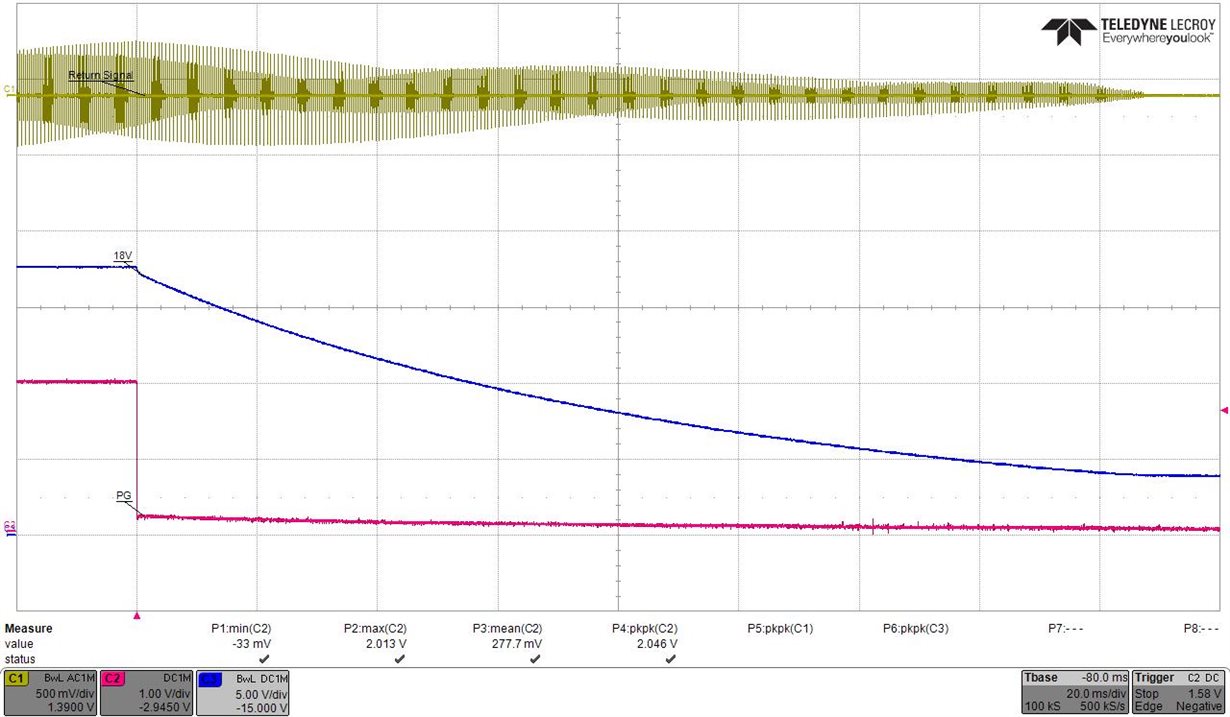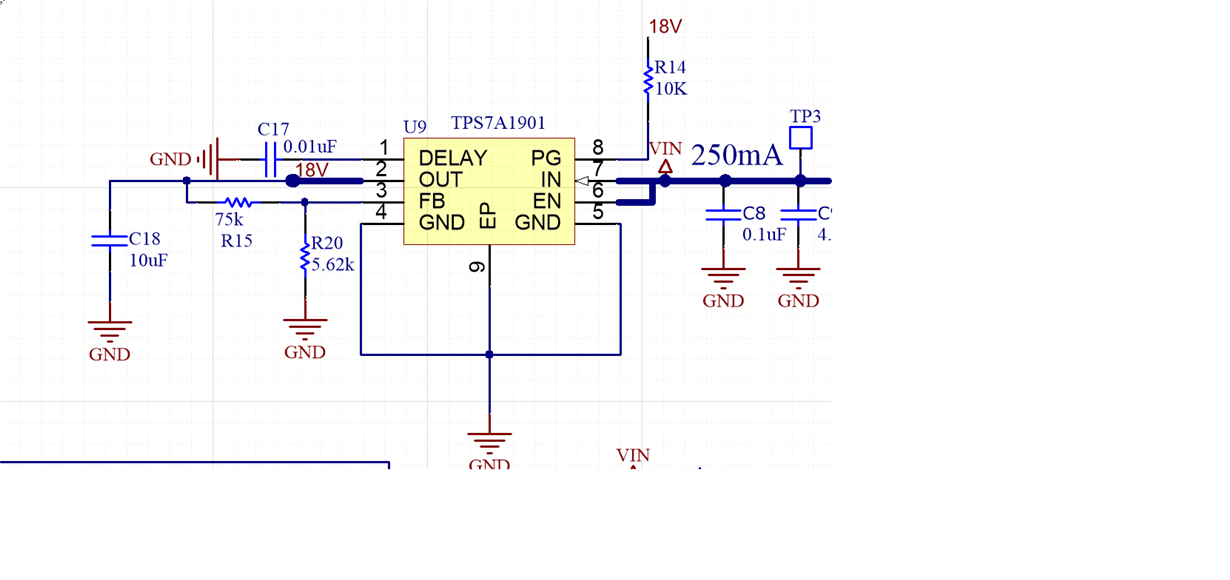I am using TPS7A19 to generate 18V
The current coming out of the regulator is 20mA and the input voltage supply is 24V.
The temperature on the LDO is not more than 40C. The input power supply is stable and the circuit is identical to the eval board except for the feedback resistors. The eval board functions without any issues but all other ICs that I have bought from digikey show this strange behavior. It looks like a manufacturing or fake component issue.
Please share thoughts if anything similar or in this direction is known about this component.
The output voltage works fine for 40-50seconds and then the Power Good output goes low and the output voltage follows it and also goes to low.
As shown in the diagram below:
PG (power good) in Red goes to low and the output 18V in blue also goes low.



